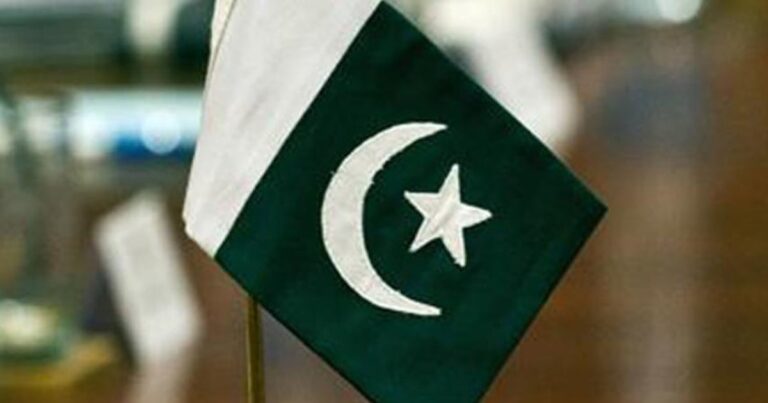
Flag of Pakistan. Image used for representation. (Photo | AFP)
ISLAMABAD: As the legal battle over reservations in Pakistan’s parliament continues, Chief Justice Qazi Faez Isa has ruled that the Election Commission is not subordinate to the Supreme Court or the government, but an independent body with a constitutional role to conduct elections.
He led the Supreme Court (SC) plenary hearing on Monday on a set of appeals by the Sunni Ittehad Council (SIC) against the denial of allocation of seats to women and non-Muslim candidates, Dawn newspaper reported on Tuesday.
The Supreme Court judges said the Supreme Court could only exercise jurisdiction if it was convinced the commission had exceeded its constitutional role, noting that ideally all institutions should function within their defined spheres.
According to the report, the Supreme Court ordered the Election Commission of Pakistan (ECP) to apply a formula for allocation of seats among political parties based on the results of the 2018 elections and carry out calculations to capture the difference by including or excluding independents.
According to the report, the court intends to understand the actual calculation of quota of reserved seats applied in the results of the February 8 elections.
Last month, the ECP moved the Supreme Court, arguing that the Sunni Ittehad Council (SIC), backed by the party of jailed former Prime Minister Imran Khan, was ineligible to reserve seats as it did not allow non-Muslims to join.
The ECP had filed its reply in the Supreme Court to the SIC’s petition against the rejection of the party’s petition seeking reservation of seats for women and minorities in Parliament and provincial assemblies after the general elections held on February 8.
The ECP said it could not allot the reserved seats as 71-year-old Khan’s Pakistan Tehreek-e-Insaf (PTI)-backed SIC had failed to submit its list of candidates for the reserved seats by the December 24 deadline.
The ECP added that according to the SIC constitution, non-Muslims cannot become party members, which is unconstitutional.
Chief Justice Isa on Monday said the Supreme Court cannot review the conduct of elections unless a specific case of actual electoral fraud in sub-elections is brought before the Supreme Court.
“Unfortunately, we are going into minute details as if we were sitting as an appellate court before the ECP,” the Supreme Court lamented.
The Chief Justice further said that no election has been accepted or enjoyed public support in the country as the losing party has always claimed that the election was fake or rife with fraud.
Unlike judges who are appointed by the Judicial Commission of Pakistan, the Chief Election Commissioner is appointed in consultation with the leaders of the ruling and opposition parties in parliament, the CJP said.
“There may be differences of opinion over the action of the Commission, but the ECP will only intervene when it deviates from the Constitution and law,” the Supreme Court stressed.
He added that the Constitution was written for the people of Pakistan and not for lawyers and judges.
On June 4, a Supreme Court judge highlighted the “legal error” made by election authorities who forced candidates from Imran Khan’s PTI party to run as independents in the February 8 general elections.
There are 70 reserved seats in the National Assembly and 156 reserved seats in the four provincial assemblies; the SIC was not given any seats as it did not contest the elections.
After the elections, the party gained strength as independent candidates backed by the PTI joined the party.
The reserved seats are allocated to the winning party on the basis of proportional representation in each assembly, but SIC’s petition was rejected by the ECP and the Peshawar High Court, after which the party challenged it in the Supreme Court.
A post-election agreement between former Prime Minister Nawaz Sharif’s Pakistan Muslim League (Nawaz faction) and former Foreign Minister Bilawal Zardari Bhutto’s Pakistan People’s Party allowed the two parties to form a federal government, even though independent candidates backed by Khan’s PTI won the most seats in parliament.

